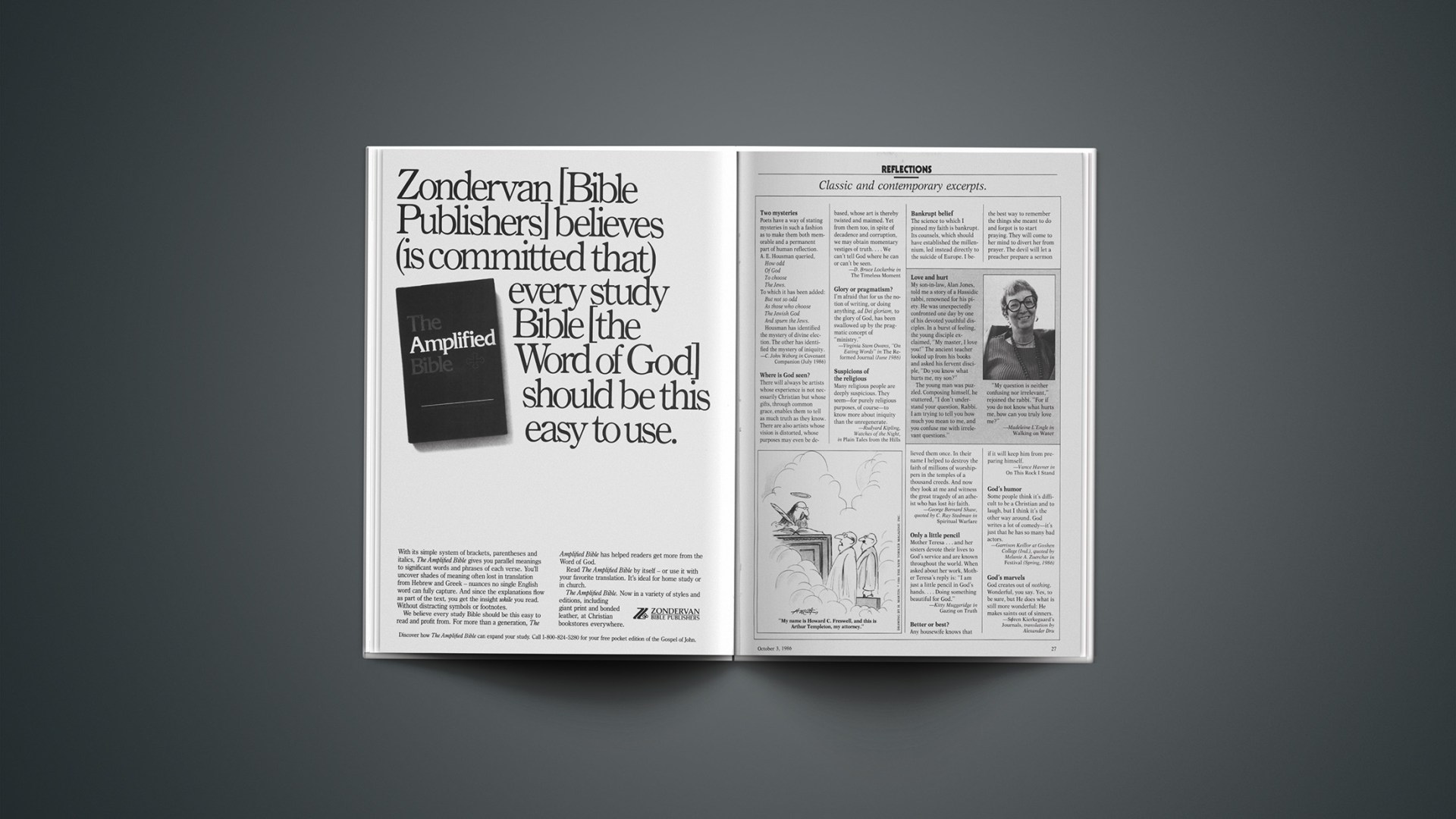“Who knows what women can be when they are finally free to become themselves?”
When Betty Friedan asked that question in The Feminine Mystique, scarcely half of the American population seemed to care about an answer. But the questions raised by Friedan and her colleagues in 1963 would not go away. Within a year, Congress passed Title VII of the Civil Rights Act, banning sex discrimination in employment. A year later, the President’s Commission on the Status of Women concluded that women were indeed victims of discrimination in the marketplace. And by 1966, Friedan founded the National Organization of Women (NOW), and a movement that would change the nature of American society had begun.
Like most movements, the struggle spilled over into the church. Within a year of the publication of Friedan’s book, the Presbyterian Church in the U.S. voted to ordain women, an action that caused considerable alarm among its more conservative members (as well as among onlookers from other denominations). Gradually, women began to look beyond the traditional opportunities for service to which they had become accustomed.
Evangelicals were divided on the extent to which women should participate in the leadership of the church. Most agreed that women represented a valuable resource of ministry for the kingdom, and that the task of spreading the gospel belonged to all believers. Many believed women should be given greater opportunities for service within the church, but should not be ordained. Others felt ordination offered women but another avenue for expressing their unique brand of spiritual leadership.
The ongoing process of looking deeply into this issue has brought about noticeable changes in the church: the home Bible-study movement (led primarily by women), the attendance of more women at evangelical seminaries, and the emergence of women in executive positions in the church.
Are these changes a healthy sign of maturity within evangelical circles? More important, is the church seeking a biblical solution to the question of sexual equality, or is it following the lead of a secular culture? For this presentation of the Christianity Today Institute, we posed these and other questions to five women who have become respected leaders in various areas of the evangelical world: Miriam Adeney, an anthropologist currently teaching at Seattle Pacific University and Regent College; Jill Briscoe, an author and speaker with a special interest in women ministering to women; Roberta Hestenes, a minister and educator now serving on the faculty at Fuller Theological Seminary; Marilyn Kunz, cofounder of Neighborhood Bible Studies; and Mary Stewart Van Leeuwen, a psychologist on the faculty of Calvin College.
We also asked Bruce Waltke of Westminster Theological Seminary and Walter Kaiser of Trinity Evangelical Divinity School to summarize conflicting exegetical treatments of biblical passages related to this subject.
And finally, Kenneth Kantzer, dean of the Christianity Today Institute, rounds out the discussion with insights into how the church can continue to explore this issue in an honest and redemptive manner.










